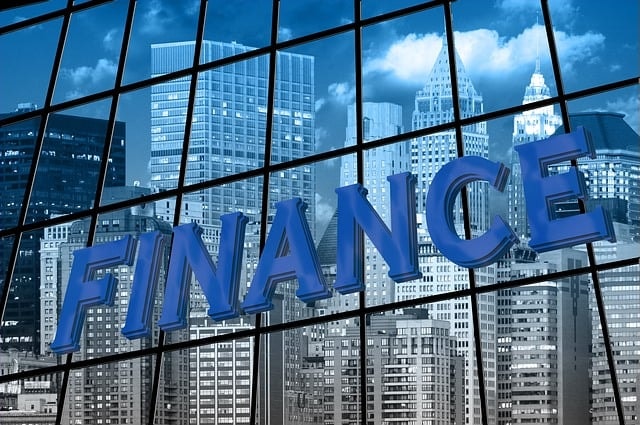What are No Money Down Business Loans?

A no-money-down business loan is a commercial financing product that doesn’t require a down payment. These loans help businesses that need funding but lack the capital to make an initial investment.
Getting a business loan without a down payment helps companies better manage cash flow and use the funds to support or grow the business. However, business owners should know that these loans represent a more significant risk for lenders. As such, they often have higher interest rates and shorter repayment periods than if they made a down payment. Additionally, these loans are likely to have a lower maximum loan amount.
Exploring the loan terms and conditions of no-money-down small business loans reveals specific requirements that borrowers must meet. In most cases, business owners will need good to excellent credit and have high annual revenue to qualify for a no-money-down business loan.
Finding the right lender is crucial when considering a no-money-down business loan. Researching and comparing offerings from various lenders is necessary to identify favorable loan agreements. Aligning with a lender that understands your business needs can significantly impact the success of your financial arrangements.
Why do Business Loans require a Down Payment?
Lenders typically prefer working with small business owners with “skin in the game.” Making a down payment demonstrates a commitment to the loan agreement, and the borrower shares some risk with the lender.
In addition, many lenders mandate a down payment to evaluate the borrower’s dedication, financial standing, and capacity to manage cash flow efficiently. By requiring this upfront payment, lenders ascertain that borrowers have the essential funds to meet their payments promptly.
A down payment directly impacts various aspects of the loan terms, including interest rates and the overall agreement. This influence extends to the available financing options for small businesses, shaping their ability to secure funding.
Where can I find No Money Down Business Loans?
Many business lenders offer options for no-money-down business loans. Finding the best lender for your business depends on your specific needs. Most lenders require borrowers to have consistent revenue deposited in a business checking account. This demonstrates a business’s ability to meet loan payments. Lenders are more likely to provide no money down to more reliable borrowers.
Traditional Lenders
Obtaining a no-money-down business loan from a traditional lender, such as a bank or credit union, can be challenging. Traditional lenders typically require some form of collateral or down payment to mitigate their risk when lending money to businesses.
Lenders may view the loan as riskier without a down payment and hesitate to approve the loan application. Traditional lenders may question the borrower’s commitment and ability to repay the loan. As a result, securing a no-money-down business loan from a traditional lender can be difficult. It may require a strong credit history, a solid business plan, and other factors to convince the lender to approve the loan.
Alternative or Online Lenders
Alternative business lenders can be better than traditional lenders when seeking a no-money-down business loan. They are often more flexible and willing to work with businesses that may not have the collateral or down payment required by traditional banks.
These financing companies typically have simpler application processes and faster funding turnaround times, making it easier for businesses to access the capital they need without a significant upfront investment. This can be especially beneficial for small businesses or startups looking to grow quickly without the financial burden of a down payment. Some online lenders also offer a no-credit-check business loan, which can help business owners with poor credit history.
What are the best No Money Down Small Business Loan options?
Many business lenders offer options for no-money-down business loans. Finding the best lender for your business depends on your specific needs. Most lenders require borrowers to have consistent revenue deposited in a business checking account. This demonstrates a business’s ability to meet loan payments. Lenders are more likely to provide no money down to more reliable borrowers.
Traditional Lenders
Obtaining a no-money-down business loan from a traditional lender, such as a bank or credit union, can be challenging. Traditional lenders typically require some form of collateral or down payment to mitigate their risk when lending money to businesses.
Lenders may view the loan as riskier without a down payment and hesitate to approve the loan application. Traditional lenders may question the borrower’s commitment and ability to repay the loan. As a result, securing a no-money-down business loan from a traditional lender can be difficult. It may require a strong credit history, a solid business plan, and other factors to convince the lender to approve the loan.
Alternative or Online Lenders
Alternative business lenders can be better than traditional lenders when seeking a no-money-down business loan. They are often more flexible and willing to work with businesses that may not have the collateral or down payment required by traditional banks.
These financing companies typically have simpler application processes and faster funding turnaround times, making it easier for businesses to access the capital they need without a significant upfront investment. This can be especially beneficial for small businesses or startups looking to grow quickly without the financial burden of a down payment. Some online lenders also offer a no-credit-check business loan, which can help business owners with poor credit history.
What are the best No Money Down Small Business Loan options?
Here are the best no-money-down business loan options through our lender network.
Business Term Loans
- Loan Amounts: $10k – $5 million.
- Factor Rates: 1-4% p/mo.
- Terms: 3 months – 5 years.
- Funding speed: 1 – 3 business days.
Business term loans are financing in which a business receives a lump sum disbursement and repays it over a set period with fixed interest rates. These loans typically do not require a down payment because the loan funds cover the total cost of the project or investment. Lenders assess the borrower’s creditworthiness and ability to repay the loan before approving the no-money-down small business loan. Business term loans typically have fixed payments. Short-term loans are less likely to require a down payment. Some loans may have a high annual percentage rate (APR) without a down payment.
Equipment Financing
- Loan Amounts: Up to $5 million per piece of equipment
- Factor Rates: Starting at 3.5% p/mo.
- Terms: 1 – 10 years.
- Funding speed: 3 – 10 business days.
Equipment financing allows businesses to acquire the necessary equipment without paying the full amount upfront. Some lenders may require a down payment as a form of security. In contrast, others offer 100% financing with no down payment, making it easier for businesses to access the necessary equipment without a significant initial investment. Equipment loans provide flexible financing options that allow businesses to manage their cash flow more effectively and invest in essential equipment to support their operations.
Business Line of Credit
- Loan Amounts: $1k – $1 million.
- Factor Rates: Starting at 1% p/mo.
- Terms: Up to 36 months.
- Funding speed: 1 – 3 business days.
A business line of credit is a flexible financing option that allows businesses to draw funds up to a specific credit limit. Unlike traditional loans, a business line of credit typically does not require a down payment because it is revolving credit, meaning the funds can be borrowed and repaid repeatedly without needing a lump sum payment upfront. This flexibility makes it attractive for businesses looking to manage cash flow and cover unexpected expenses.
Invoice Factoring
- Loan Amounts: $10k – $10 million.
- Factor Rates: Starting at 1% p/mo.
- Terms: Up to 24 months.
- Funding speed: 1 – 2 weeks.
Invoice factoring, or accounts receivable factoring, is a funding strategy where a company sells its accounts receivable (unpaid invoices) to a third party at a discount in exchange for immediate cash. This process does not require a down payment because the factoring company advances a percentage of the invoice value upfront, allowing businesses to access funds quickly without making an initial payment. Invoice financing uses a business’s unpaid invoices as collateral to secure a loan.
What are the benefits of a No Money Down Business Loan?
One key benefit of a no-money-down business loan is that it allows entrepreneurs to access funding without putting up a large sum of money upfront. This can be particularly advantageous for new businesses or startups that may not have significant capital to invest initially.
By obtaining a no-money-down loan, business owners can secure the funds they need to launch or expand their business without depleting their savings or personal assets. Additionally, these types of loans can help companies conserve cash flow and maintain liquidity, providing financial flexibility to cover operating expenses or unexpected costs.
What are the drawbacks of a No Money Down Business Loan?
Borrowers must weigh the risks of no-money-down business loans, including higher interest rates and potential financial strain on the business. These loans often come with shorter repayment periods, increasing the pressure on the borrower.
Opting for a no-money-down business loan can restrict small businesses’ financing options since not all lenders offer this type of loan. The higher risk associated with such loans makes them less attractive to most lenders.
No-money-down business loans typically entail stricter loan terms, such as higher monthly payments and the necessity of providing collateral to secure the loan agreement. Borrowers face challenges in meeting these demanding terms.
No Money Down Business Loan Pros & Cons
Pros:
- Allows businesses to access funding without needing capital upfront.
- Can help businesses get off the ground or expand without depleting their savings.
- Often available from online lenders that can provide fast funding.
Cons:
- Higher interest rates may result in increased overall cost of the loan.
- May require collateral or a personal guarantee.
- Fewer lender options.
How do I apply for a No Money Down Business Loan?
By following these steps, you can apply for a no-money-down small business loan through our lender network.
Step 1: Choose the Right Product
The first step is choosing the right product for your needs and goals. This should require research, as each product is designed for different financial circumstances and cash flow cycles. Does your business experience occasional dips in revenue? Is your business highly seasonal?
It would be best if you also considered the purpose of the funds. How long will it take you to pay off the loan? This will help us determine the right borrowing amount and terms for you.
Step 2: Gather Your Documents
Here are the documents required for each type of business loan:
Business Term Loan or Line of Credit:
- Driver’s license
- Voided business check
- Bank statements from the past three months
Equipment Financing:
- Driver’s license
- Voided business check
- Bank statements from the past three months
- Invoice for equipment
Accounts Receivable Factoring:
- Driver’s license
- Voided business check
- Bank statements from the past three months
- Business tax returns
- Account Receivable Aging report
- Accounts Payable report
- Debt schedule
Step 3: Fill Out Application
You can begin the application process by calling us or filling out our one-page online application. Either way, you’ll be asked to enter the information from the previous section along with your desired funding amount.
Step 4: Speak to a Representative
Once you apply, a representative will contact you to explain the repayment structure, rates, and terms of your available options. This way, you won’t have to worry about surprises or hidden fees during repayment.
Step 5: Receive Approval
If approved, you’ll hear back from us within 24 hours. Funds should appear in your bank account anywhere from 24 hours to one week.
Frequently Asked Questions
Here are the most common questions about how to get a business loan with no money down.
Can I get an SBA Loan with No Money Down?
Many people consider Small Business Administration (SBA) loans the gold standard of business financing. The SBA partially guarantees these loans, giving lenders the security to offer more significant borrowing amounts at lower interest rates and longer repayment terms.
Unfortunately, qualifying for an SBA loan can be challenging. Most SBA-approved lenders require good to excellent credit, high annual revenue, and at least 2-3 years in business.
In addition, SBA 7(a) and 504 loans typically have a down payment requirement of 10% to 30%. The SBA doesn’t set a minimum down payment, so it’s at the lender’s discretion.
However, some SBA loans may be available without a down payment.
SBA Express Loan: An SBA Express Loan typically offers quicker approval and funding than traditional SBA loans. This may be why it sometimes does not require a down payment, making it an attractive option for small businesses looking for financing with minimal upfront costs.
SBA CAPLines of Credit: A type of financing that allows businesses to access an SBA revolving line of credit for working capital needs. This type of loan does not require a down payment because it is designed to help businesses manage cash flow and meet short-term financing needs without the burden of a large upfront payment.
SBA Microloan: SBA financing up to $50,000 is intended explicitly for startups and new businesses. An SBA microloan might not require a down payment because it’s designed to help startups get off the ground. Microloans typically have low eligibility requirements and may not require a minimum credit score or annual revenue.
SBA Disaster Loans: A type of financing for businesses in a declared disaster area. The SBA funds these disaster loans directly and typically doesn’t require a down payment because it’s intended as emergency funding.
Can startups apply for No Money Down Business Loans?
Startups can apply for no-money-down business loans, but they may need to demonstrate strong business plans, revenue projections, and potential for growth to qualify. In addition, you may need to provide collateral or a personal guarantee to secure funding. Remember, you also must pay interest on the loan, so ensure your projected revenue can cover the additional cost.
Do No Money Down Business Loans require collateral?
Depending on the lender, collateral may not always be necessary when applying for no-money-down business loans. Many lenders offer these loans without requiring collateral, making them attractive to small businesses with limited business assets. Loans without collateral are called unsecured loans.
However, some lenders may require collateral to offset the risk of a no-down-payment loan. Business owners with low credit or other risk factors may have to provide collateral or other guarantees to get approval. Unsecured loans may also have higher interest rates. Excellent business credit helps offset collateral requirements.
Personal Guarantee
A personal guarantee in business loans is a commitment by the business owner to repay the loan personally if the business cannot do so. This guarantee may be necessary to obtain a loan without collateral because it provides the lender with additional reassurance that the loan will be repaid, reducing the lender’s risk without physical assets to secure the loan.
What’s the easiest Business Loan to get with No Down Payment?
There’s no concrete answer about the most accessible no-money-down business loan because it depends on your unique circumstances. Equipment financing may be easier to get because the financed equipment is collateral.
Invoice factoring is often accessible because approval depends on your customer’s creditworthiness, not yours. Some entrepreneurs opt for business credit cards, which usually don’t require money down.
Alternative Funding Options
Alternative funding solutions, such as merchant cash advances or revenue based financing, may be more accessible without a down payment.
Merchant Cash Advance: A type of business financing in which a funder provides a lump sum of money to a business in exchange for a percentage of future credit card sales. This type of financing doesn’t require a down payment because the lender purchases a portion of the business’s future revenue, making it easier for businesses to access funding without needing to put up collateral or make an initial payment. Business cash advances are not considered loans, as they are repaid based on future revenue, typically involving a fixed percentage of daily sales.
Revenue Based Financing: A type of funding where a company receives capital in exchange for a percentage of its future revenue. Unlike traditional loans, revenue-based financing does not require a down payment because the repayment is based on a percentage of the company’s revenue, making it more flexible and suitable for businesses with fluctuating cash flow.
Business Grants: A business grant provides funding that doesn’t have to be repaid. However, business grants are highly competitive, making obtaining this form of financing difficult.
Does my credit score impact whether a Business Loan requires Money Down?
Maintaining a good personal credit score plays a significant role in securing a business loan with no money down. Lenders often consider this factor when evaluating loan applications, as it reflects the borrower’s reliability in making timely payments. A good personal credit score increases the chances of approval and may even lead to better loan terms with business lending.
Check your credit score to assess your eligibility before applying for a business loan with no money down. Research various lenders offering this financing option to find the right lender for your small business. Providing essential financial documents showcasing your business’s cash flow and capital can enhance your chances of securing a loan with no money down.
Can I get a Bad Credit Business Loan with No Money Down?
Some lenders may provide bad credit business loans with no down payment required. However, these loans typically have higher interest rates and fees, lower borrowing amounts, and shorter repayment terms. A down payment could help lower the rate you receive or reduce costs.
How to Get a Business Loan with No Money Down – Final Thoughts
With the right approach and preparation, obtaining a business loan with no money down is possible. Entrepreneurs can secure the funding they need to start or grow their businesses by exploring options such as term loans, business lines of credit, invoice financing, and equipment financing.
To increase your chances of approval, it’s essential to research thoroughly, create a solid business plan, and demonstrate financial responsibility. A no-money-down business loan can provide the necessary funds to kick-start your business growth.
Contact us if you have more questions or to apply for a small business loan. Our alternative funding experts can help you find the best financing options for your business needs.














